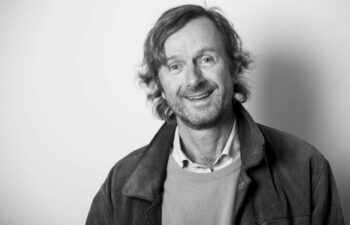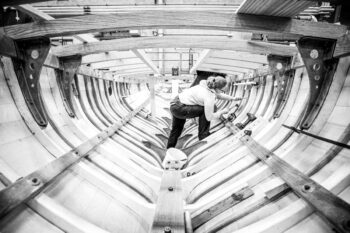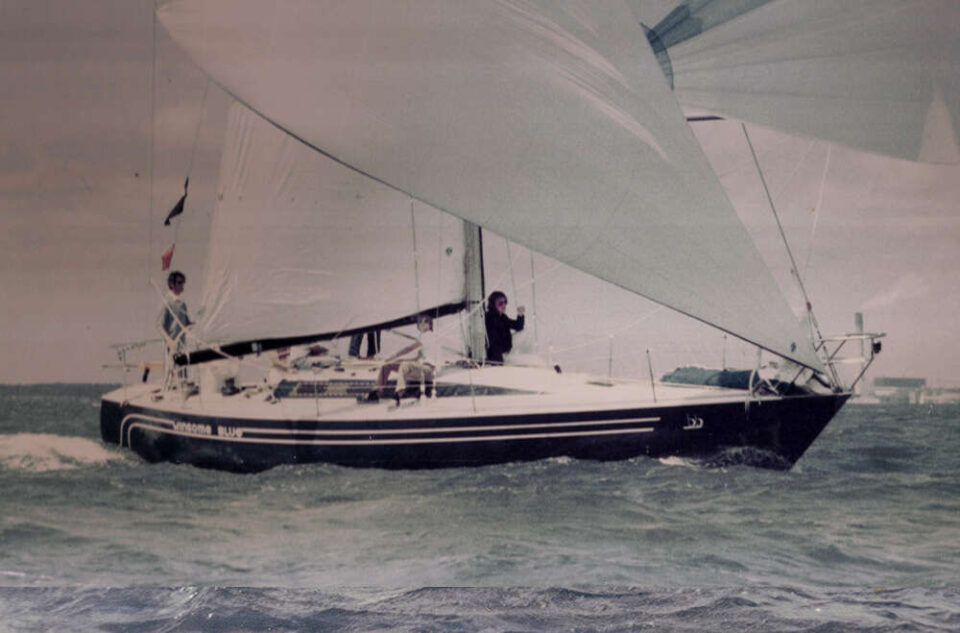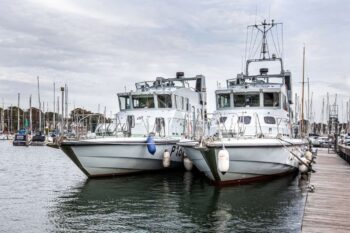A Q&A with Brian May
June 29th, 2021
 A Q&A with Brian May, one of Berthon’s co-owners who saw his 60th birthday this month. Berthon’s grand legacy has been woven into the modern era, a tapestry of past and present that makes Berthon the company it is today. Whilst we learn from the past and take pride in the impressive heritage, we remember that everyday actions and decisions are sewn into the storyline.
A Q&A with Brian May, one of Berthon’s co-owners who saw his 60th birthday this month. Berthon’s grand legacy has been woven into the modern era, a tapestry of past and present that makes Berthon the company it is today. Whilst we learn from the past and take pride in the impressive heritage, we remember that everyday actions and decisions are sewn into the storyline.
After a turbulent year that could never have been foreseen, we took time to talk with Brian about his time with the company thus far, the evolution and adaptation of Berthon, and further become acquainted with one of the two brothers who hold the tiller.
Q. What does Berthon’s History mean to you?
A. Brian May: I am an avid collector of Berthon & Inman memorabilia. I am constantly putting stories together and many wooden Berthon-built boats have been restored and even rebuilt over the years. RIPPLE is one of my favourite projects being a West Solent One Design built by my great grandfather in 1925. Many of our apprentices have spent time learning traditional and indeed modern skills whilst working on her.

RIPPLE, 1925 Berthon built West Solent one design
We fundamentally believe that if there is a modern solution, then it should be used; for example, if owners of classic cars can electrify their steeds, why not use sustainable hard wood laminate for frames that used to be grown oak? The boat will last at least another 100 years and if not more. We have recently acquired two Berthon collapsible boats that are in great condition and they remind us of the Reverend’s inventive mind. Heritage is in our blood and supports the passion needed to run a family business.
Q. What is your most treasured memory from your time at Berthon?
A. Brian May: Sailboat regattas and although I averaged 100 days of competitive sailing whilst holding down a City job for five years, I was then able to keep this up when having joined the family firm. Sailing together with friends all enjoying the teamwork and doing well is simply fantastic since it is not just about the camaraderie on board your race boat, but enjoying meeting your competitors ashore.
Q. What would you say has been your biggest influence on the company?
A. Brian May: Apprenticeships, although Keith Longman, Yard Manager, did most of the groundwork spending about one-third of his time working on the Government’s Trailblazer agenda that has fundamentally changed the marine industry’s education & course programs of study. Syllabi now includes lean management, the economics of the marine business, and boat handling, to ensure graduating apprentices are learning not only a craft skill but also now understand why efficacy and productivity are vital to modern skills and the businesses that employ them.
Q. What is a valuable lesson you have learnt during your time at Berthon?
A. Brian May: We have learnt to trust our instincts and our experience which comes from generations of working with the river and the communities we serve – regulations and policy surrounding all businesses evolve so frequently these days that much of the management task is to deal with the growing army of ‘experts’ tasked with enforcement. We aim to bring real local knowledge to the debate and a holistic view of what is going to deliver an outcome that is positive for the development of Lymington, for our industry, and for our ability to better serve our clients.
Q. What is your earliest memory at Berthon?
A. Brian May: Living and growing up on-site was a child’s ultimate playground; climbing and playing undercover in the large open sheds on 13 slipways when it was raining; sailing and motor boating from home (no lifejackets and completely unsupervised!). My brother and I enjoyed monkey town between sheds and boats ashore, as we watched the marina being built, and firing air rifles at pyramids of tin cans stacked on horizontal shed frames. We also created death/zip wires, and much more! I do recall the sedge mud flats being larger and we are very pleased to have co-cajoled the powers-that-be to dump dredged silt onto the marshes; this has been successful.

Winsome Blue built in 1976 at Berthon David May at the helm, Brian May sitting on the coachroof
Q. What is one thing people may be surprised to learn about yourself?
A. Brian May: When I was at University I learnt how to glass blow; since then I have collected glass whether it be hand-blown glass for everyday use (from BIOT in S France) to acknowledged sculpture. A few years ago, Emsie in Dorset helped me start glassblowing again.
Q. What inspires you?
A. Brian May: I think it is fair to say that we all appreciate the freedom a boat at sea brings and we are part of the process of helping others to enjoy that sensation. Luckily, Covid has seen families come together relishing this.
Q. The marine industry has changed dramatically over the years, how has Berthon adapted and evolved to reflect this?

Royal Navy P2000 Archer Class Fast Inshore Patrol Craft
A. Brian May: Berthon has kept pace with modern means of construction having built 40+ lifeboats in 25 years for the RNLI working with Kevlar and carbon fibre, tungum for pipework, and sophisticated launching systems, all of which helped us stay in touch.Servicing leisure & commercial marine vessels (from P2000’s to the SBS/SAS fleet of training RIBs) for the MOD, give us a diversity of skills , but Natural England Fishery vessels that seek not just fish, but poachers as well, takes that to another level! Many of the leisure boats we sell new (WINDY, PEARL, IGUANA (amphibious), to FPB discovery yachts, SOLARIS & ADVANCE sailboats, all embrace new technology, and our position as the world’s most focussed brokerage for bluewater cruising yachts keeps us at the forefront of real adventure long-distance cruising. Finally, the apprenticeship programmes bring on the younger generations who have to pick up new skills at the same time as preserving traditional hands-on craftsmanship. All the above creates a fabulous range of knowledge. It is all the above that helped us double employment over the 30 years that my brother, Dominic, and I have been at the helm of Berthon.
Q. In your opinion, what do you think it means to be a Berthon employee?
A. Brian May: I think you’d have to ask them that question, after all, we are simply custodians for the next generation! However, we are proud that we have many who have spent more years here than us – therefore we must be doing something right. Our strong balance sheet gives confidence that they have a skill and a job for life. We have also welcomed dogs coming to work, and now offer flexible working hours and semi-retirement, all of which shows we are willing to listen and forge new pathways. We also believe they enjoy the mutual advantage of our annual notional dividend that rewards both effort and loyalty based on group profits.
Q. What would you say to someone considering to enter the maritime industry?
A. Brian May: It is a great industry to be in, but just like any other career choice, they must be dedicated.
Q. Can you give us an insight into the future of the company?
A. Brian May: With boats getting larger, we have plans to install a new 150T hoist dock, and at the other end of the scale a modern sustainably powered electrified drystack to accommodate demand for small boats (that can then avoid antifouling) and provide storage for BHG’s ever increasing stock of tenders and Versadock’s floating platforms (that also remove the need to antifoul). In due course, when steel prices return to sensible levels, a new sustainable 100 year life piled frontage is required prior to new marina pontoons and layout. When that is complete, we might consider slowing down a touch!
![]()
Brian and Dominic’s father, David May, left them a business that was debt-free with a well-known brand to build upon. Berthon has demonstrated that it welcomes change, whilst respecting history and understanding the importance of traditional values. With exciting projects (more Music on the Marina concerts) and plans to look forward to, this year has simply beheld a single stitch within the evolving tapestry, to which we bear witness to as the images unfold.
Follow Berthon on social media for regular updates, and to see the images unfold in real-time >> Follow Berthon

